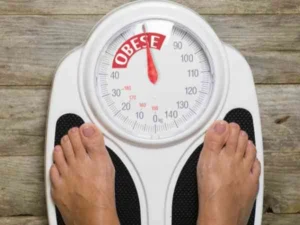Vegan cheese: All about its Nutrient Content
Vegan cheese has been gaining popularity in recent years for a variety of reasons. Many people, who are health-conscious or environmentally conscious, switch to this cheese as an alternative to traditional dairy products. However, switching to this cheese might not be the best decision for you if you want to maintain optimum health.

Here’s why:
Vegan milk doesn’t contain enough of the essential nutrients that cows need to produce milk. Which is (lactose and casein), so it’s not as nutritious as cow’s milk. Consequently, vegans who drink soy or almond milk may suffer from deficiencies in these key nutrients.
This cheese is made of plant-based ingredients and does not contain dairy products. It often comes in the form of cheese replacements such as this cheese spread, slices, and balls. Although the alternative to dairy cheese is widely considered to be a healthier option. But there are a few factors to consider before making the switch.
What vegan cheese is made of?

Some vegan cheese products are made of soy milk, sugar, and cornstarch. These ingredients are not ideal for those looking to improve their health. The health risks associated with consuming this cheese are numerous. Soy and other plant-based ingredients are high in phytic acid. They can inhibit the absorption of important minerals like calcium and magnesium. Additionally, soy products are a source of goitrogens, which can lead to the development of goiters. Another health hazard of consuming this cheese is the fact that many vegan cheese products are high in sodium.
Vegan Cheese Does Not Contain Any Nutrients
Vegans may have trouble digesting milk-based dairy products like cheese, but this does not mean that they lack any nutritional value. In fact, according to the USDA National Nutrient Database (NBD), vegan cheese contains many beneficial vitamins and minerals. Some of them include vitamin B12, calcium, magnesium, zinc, iron, sodium, and phosphorus. These are just a few of the nutrients that can be found in vegan cheese. While dairy cheese might contain higher amounts of fat than vegan cheese, it is still lower than regular cheese.
Nutrient Content in (28g) Vegan Cheese
| Nutrient | Value |
|---|---|
| Calories | 70 |
| Total Fat | 3.5g |
| Saturated Fat | 1.1g |
| Polyunsaturated Fat | 0.5g |
| Monounsaturated Fat | 1.8g |
| Cholesterol | 0mg |
| Sodium | 194mg |
| Total Carbohydrates | 6.7g |
| Dietary Fiber | 0g |
| Sugars | 6.7g |
| Protein | 3.3g |
| Vitamin D | 0mcg |
| Calcium | 173mg |
| Iron | 0.1mg |
| Potassium | 129mg |
Source (nutritionix.com)
It is not all bad, it has some benefits too.
There are a few factors to consider before switching to this cheese. This includes the ingredients used to make the cheese, and the health risks associated with consuming vegan cheese. It is important to be aware of the health risks associated with consuming this cheese. But one should not be discouraged from making the switch.
Is vegan cheese healthy?

We all know that cheese is delicious, but what many people may not know is that consuming dairy products can cause health problems. Dairy products are high in cholesterol and other unhealthy fats, which can increase the risk of developing heart disease, type 2 diabetes, and some types of cancer. Vegans who choose to consume this cheese should be aware of these risks so they can make an informed decision about their diet.
The primary ingredients in vegan cheese are nuts, seeds, water, and plant-based oils. These ingredients are not always healthy and can lead to various health problems. For example, nuts and seeds contain lectins and omega-6 fatty acids. This can increase your risk of developing diabetes, heart disease, and other chronic health conditions. Additionally, many vegan cheese products are also high in sugar, sodium, and calories. Switching to this cheese might not be wise if you wish to maintain a healthy lifestyle.
What can we do to prevent diabetes?
Simply eating a variety of whole plant foods, combined with a healthy dose of fat, may improve your odds of avoiding chronic diseases. Healthy eating can help you prevent, manage, or even reverse diabetes. Taking steps to prevent or control diabetes does not mean living a life of deprivation; it means eating a delicious, balanced diet that will also increase energy and improve your mood.
The American Heart Association has acknowledged that a low-fat, high-carbohydrate diet can raise triglycerides in some people, which may contribute to diabetes and an increased risk of heart disease. Some types of saturated fat raise your blood levels of bad lDL cholesterol, which may increase your risk of heart disease. Regularly choosing foods that are high in sodium may cause high blood pressure, another risk factor for heart disease.
Switching to this cheese might not be wise. It could cause diabetes, heart disease, and other chronic health conditions.
Are there any side effects of eating vegan cheese in Diabetes?
There are several potential side effects of eating this cheese. Likely due to the lack of animal-based proteins and cholesterol in most plant-based cheeses. These include elevated blood sugar levels, weight gain (especially around the belly), and insufficient calcium intake. They also include deficiencies in certain vitamins and minerals, problems digesting protein foods, intestinal inflammation, and trouble regulating blood sugar levels.
Some common side effects of this cheese ingestion include increased blood sugar levels, weight gain, and problems with blood sugar control. It is important to be aware of these side effects and to avoid eating this cheese if you have diabetes to minimize the risk of these effects.
Vegan cheese can be a great addition to a diet if you are looking to reduce your overall caloric intake. However, be wary of consuming too much vegan cheese, as it can quickly add up in calories and lead to weight gain. If you are looking to add this cheese to your diet, be sure to keep track of the amount you are eating and monitor your blood sugar levels closely.
How to eat vegan cheese with diabetes?
In addition to the side effects of this cheese consumption, it is also important to be aware of the different ways to cook with this cheese. Many vegan slices of cheese are difficult to cook with, as they have a thick and creamy texture. There are a few ways you can cook with this cheese, including using microwaves, ovens, or warming dishes. However, be mindful of the potentially harmful effects of microwaves and other high-frequency appliances on your electrical system.
If you are diabetic and are considering adding vegan cheese to your diet, be sure to speak with your doctor first. Vegan cheese can have different effects on people with diabetes, and it is important to be aware of these side effects to avoid problems. Additionally, be sure to cook vegan cheese properly to avoid health risks.
The final takeaway, Going Vegan? Are you considering going vegan?
If so, you may be curious about the health benefits of this lifestyle choice. While there is no one-size-fits-all answer to this question, many experts agree that adopting a plant-based diet can protect your body from a variety of chronic diseases. Some researchers believe that going vegan is one of the best ways to improve your overall health! Going vegan for some time may have numerous benefits for your health. But it’s important to be mindful of any potential consequences that may arise.
There are a few factors to consider before switching to vegan cheese. This includes the ingredients used to make the cheese, the health risks associated with consuming vegan cheese, and the benefits of consuming vegan cheese.
Frequently Asked Questions
Is vegan cheese good for diabetics?
Vegan cheese is usually lower in saturated fat and cholesterol than dairy cheese, making it a good option for diabetics.
Will vegan cheese help you lose weight?
Vegan cheese is lower in calories and fat than conventional cheese, so it can help you lose weight when consumed as part of a balanced diet.
Plant-based cheese health benefits?
Plant-based cheeses have the following health benefits compared to dairy cheeses. They contain no cholesterol, are low in saturated fat, and are often high in fiber and nutrients.
Is vegan cheese good for kidney disease?
Vegan cheeses tend to be lower in phosphorus and potassium than dairy cheeses, so they may be a good choice for people with kidney disease.
Does vegan cheese raise cholesterol?
Vegan cheese generally does not contain cholesterol, so it is unlikely to raise your cholesterol levels like some dairy cheeses.
Is cheese bad for diabetics type 2?
Because cheese contains calories and fat, people with type 2 diabetes should consume cheese in moderation, whether vegan or dairy.
Does vegan cheese make you gassy?
Vegan cheese can cause bloating in some people due to ingredients such as soy and other plant sources, but this varies from person to person.





